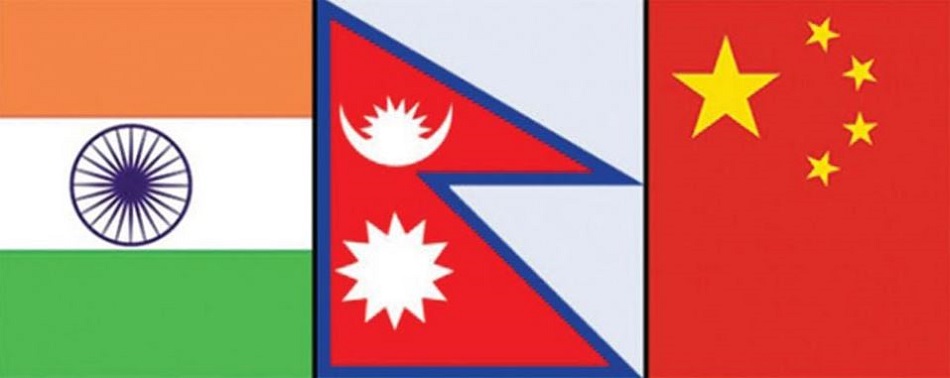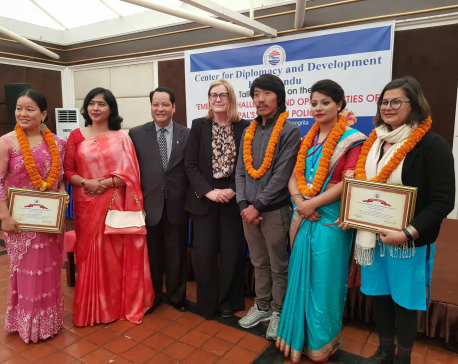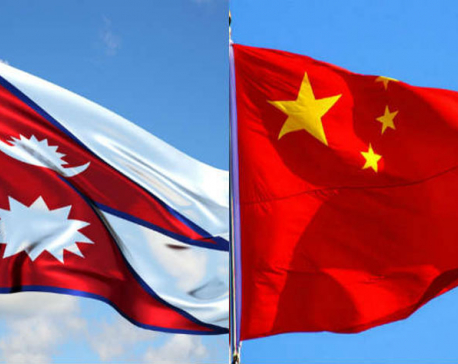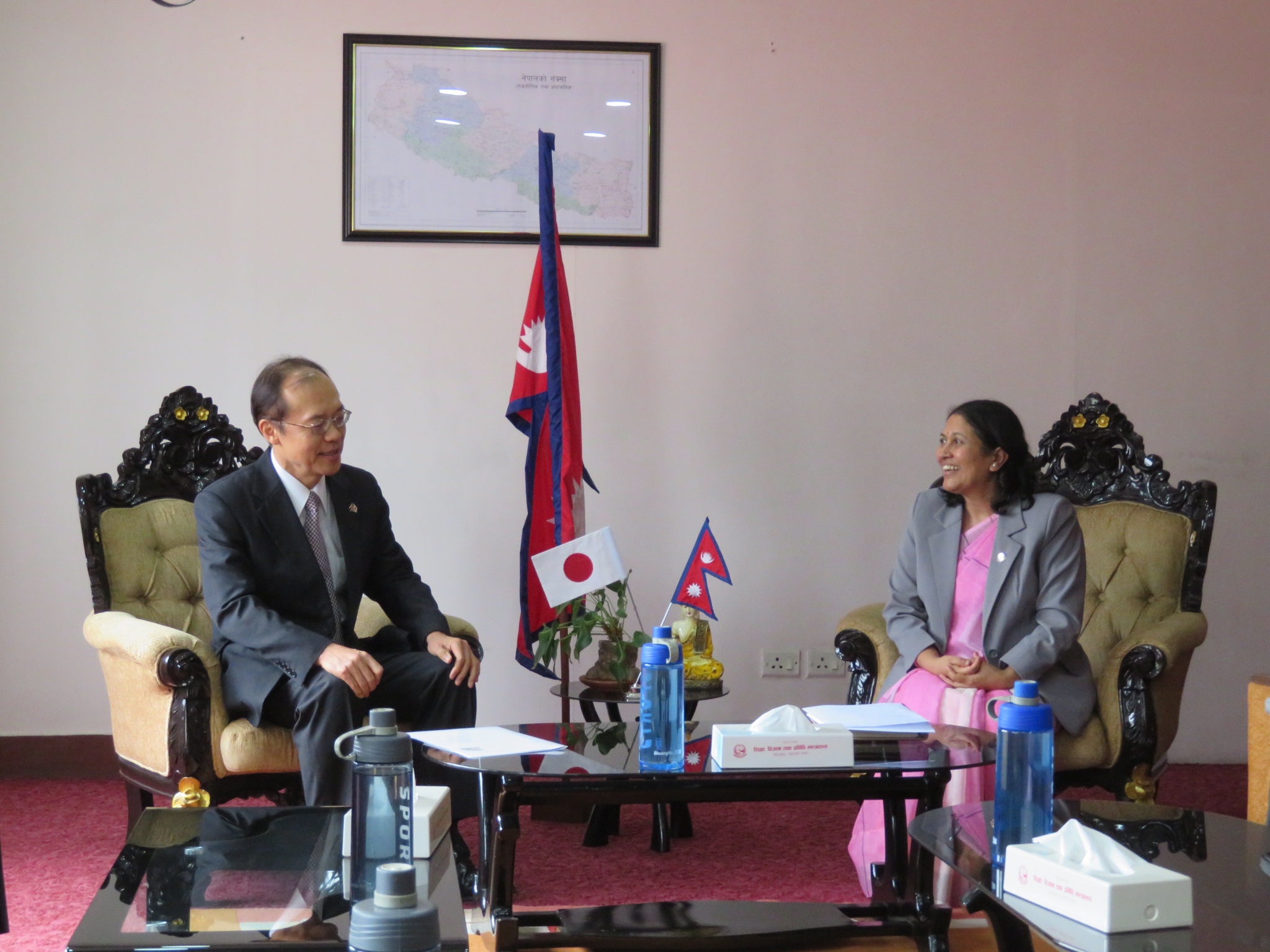
OR
Nepal’s relations with India and China are independent of each other
Published On: October 16, 2020 07:10 AM NPT By: Dinesh Bhattarai


Dinesh Bhattarai
Dinesh Bhattarai, former diplomat and foreign policy expert, has served as the foreign affairs adviser of former prime ministers Sher Bahadur Deuba and Sushil Koirala.news@myrepublica.com
Nepal must work to avoid becoming a pawn at the hands of either of its two neighbors or going against them to please any powers.
The basic premise of any country’s foreign policy is its geography and socio-historical tradition. It was against this setting that the unifier of Nepal, King Prithvi Narayan Shah (1742-1774), laid down the guidelines of a “yam between two boulders.” He alerted the nation to be careful, cautious, and rational, as geography is a hard reality a country cannot afford to ignore.
In the early 19th century, Napoleon suggested to study a nation’s geography to know its foreign policy. The “geographic location” of a country, wrote Zbigniew Brzezinski, the former national security adviser to US President Jimmy Carter, “still tends to determine the immediate priorities of a state.” Geography is important in this century, writes a geopolitical analyst and author on foreign affairs who has been included in the world’s “Top 100 Global Thinkers,” Richard Kaplan, as it was in earlier centuries.
Nepal’s relations with India and China are vital and of prime priority. While maintaining the best of relations with neighbors based on the five principles of peaceful coexistence, Panchsheel, and guided by the United Nations Charter, Nepal pursues a policy of friendship and goodwill with the wider international community at bilateral and multilateral levels and remains constructively and productively engaged. Nepal desires to accelerate the process of socio-economic transformation at home through interests based engagements with international community. The strong foundations of better and balanced relations with India and China would assist Nepal to deal more smoothly and project its interests and image in international arena.
Addressing the Kathmandu- based Heads of Diplomatic Missions on May 9, 2014, the late Prime Minister Sushil Koirala said, “Our foreign policy priority begins with neighboring countries.” He added, “Nepal’s proximity to two powerful ancient neighbors, fastest growing economies and rising global powers give it a great future ahead and vast opportunities to translate the rich potentials of hydropower, agriculture, tourism and bio-diversity in the trans-Himalayan region into concrete advantages for common benefit.” He also made it clear that while Nepal’s engagement goes much beyond neighborhood to cover bilateral and multilateral engagements, it is the state of relations with neighbors that gets intimately tied to the successful conduct of foreign policy in the larger sphere.
Nepal’s relations with India are pre-historic and multifaceted. While a wide range of cooperative activities span across economic, political, security, cultural areas, the frequency, intensity, width and breadth of people-to-people relations between Nepal and India demonstrates the depth of these relations. Nepal’s age-old relations with China are growing in recent times covering a wide range of cooperative activities. The central focus of this relationship has come to be on connectivity. During his visit to Nepal last October, Chinese President Xi Jinping pledged to make Nepal a land-linked country from a landlocked country.
Nepal’s relations with its neighbors are independent of each other. The growing cooperation with China in no way diminishes the overwhelming nature of its relations with India. While Nepal follows ‘One China’ policy, Chinese leaders starting from Mao Tse-tung and Chou en Lai to the current leadership advise Nepal “to be friendly with India without being hostile to China.”
Both India and China have their neighborhood diplomacy. This diplomacy emphasizes that unless there is peace, stability and development in the neighborhood, it is difficult to progress and present oneself as global powers. Both India and China are rising and aspire to become global powers. They are both nuclear powers, and most populous countries with about 40 percent population of the global total. They are technological and military powers, with strategic interests in Nepal’s peace, stability and development.
Nepal pursues pluralism at home and multipolarity in international relations. It is a united house of diverse societies of multicultural hues. Nepal’s time-honored tradition of tolerance for diversity is its national strength. The common aspirations of people living in diverse geographical regions are tied to a bond of allegiance to national independence, territorial integrity, national interest, and prosperity of Nepal. Democracy is the glue to bind all these factors together.
Shifting geopolitics
The geopolitical landscape is rapidly shifting. The Covid-19 pandemic has accelerated this shift. We need to understand both challenge and opportunities that come with it. Nepal’s strategic location is in the increasing attention of both established and emerging powers. This makes Nepal an intersection of competing and conflicting interests of foreign stakeholders particularly India, China, USA, Europe, and donor countries. Nepal needs to be careful not to let any powers including neighbors cross the Lakshman Rekha—the red line.
While Nepal remains respectful and sensitive to the interests and concerns of its neighbors, it expects them to be equally sensitive and respectful to Nepal’s interests and concerns. It has been the long-standing policy and position of Nepal not to allow its territory to be used for any activity against its neighbors. It is absolutely necessary to be equally careful not to be seen as offending one neighbor against the other. We must ensure that our approach is pragmatic, principled, and cognizant of the geographical realities. Nepal’s policy should be of balancing, not show temptation for aligning. The test for Nepal’s diplomacy is to convince both the neighbors on this.
There is a worldwide trend of political leadership resorting to all sorts of ultra-nationalism, jingoism, populism and authoritarianism to divert attention for governance deficit and “effectively” abdicating responsibilities. Nepal is no exception to be the victim of this trend. The rise of the current ruling party was on nationalist rhetoric with roots in anti-Indianism. The party leadership excessively politicized foreign policy at the campaign trail in a determined and unprecedented way to sway the voters from national to block level. The politicization of country’s foreign policy for domestic politics should be corrected sooner. Otherwise, the net result will be the weakening of foundation of national power leading to the loss of trust and credibility.
The most important contemporary development Nepal faces is the reality of a superpower at its doors. Nepal’s relations with neighbors are independent of each other. Nepal’s policy of non-alignment gives it enough space to engage selectively with different development partners for different issues and judge them on merits to form a national position. Whether Belt and Road Initiative (BRI) or Millennium Challenge Compact (MCC) projects, Nepal remains selectively engaged with the issues, judging them on merits and picking up projects which serve best national interests and are helpful for ensuring the socio-economic transformation of the country within an overall democratic framework.
These are challenging times. The conduct of foreign policy has become more complex and sensitive. The end of the Cold War, disintegration of the Soviet Union, onset of economic globalization, rise of China closely followed by India as global powers along with the advancement of technological innovation have all created new frontiers of diplomacy. The role of non-state actors along with NGOs, public opinions, multinational corporations, and cultural organizations that were once on the periphery of traditional diplomacy have emerged to become important players. In such a complex and challenging scenario, Nepal’s neglect of strengthening foreign policy establishment is incomprehensible. These glaring institutional deficiencies constrain the better manipulation of the components of foreign policy, at the desirable level. Challenges staring at us will grow proportionately to the continued neglect of foreign policy establishment at our disadvantages.
Strength abroad comes from strength at home. Clarity and priority in foreign policy will earn credibility. Nepal must be clear about its central challenges and priorities. Nepal must work to avoid becoming a pawn at the hands of either of its two neighbors or going against them to please any powers. Nepal’s soft power potential for foreign policy as seat of rich cultural heritage is huge. It requires more serious and urgent attention than it is receiving at the moment in the field of foreign policy scholarship. Unless neighbors become better friends, and better partners and trustworthy, foreign policy will continue to be a policy of blame devoid of responsibilities and moral considerations.
You May Like This

Nepal-India energy talk scheduled for December 10-11
KATHMANDU, Dec 4: Nepal and India are sitting for a talk next week to take forward the process of materializing... Read More...

Experts advise Nepal to have a clear, proactive foreign policy
KATHMANDU, March 8: Foreign policy experts have stressed the need to articulate a clear foreign policy taking into account the national... Read More...

Foreign Secretary Bairagi reaches Beijing to participate in consultation mechanism meeting
KATHMANDU, Dec 12: A three-member delegation led by Foreign Secretary Shanker Das Bairagi reached Beijing on Wednesday to participate in... Read More...











Just In
- Nepal at high risk of Chandipura virus
- Japanese envoy calls on Minister Bhattarai, discusses further enhancing exchange through education between Japan and Nepal
- Heavy rainfall likely in Bagmati and Sudurpaschim provinces
- Bangladesh protest leaders taken from hospital by police
- Challenges Confronting the New Coalition
- NRB introduces cautiously flexible measures to address ongoing slowdown in various economic sectors
- Forced Covid-19 cremations: is it too late for redemption?
- NRB to provide collateral-free loans to foreign employment seekers







Leave A Comment